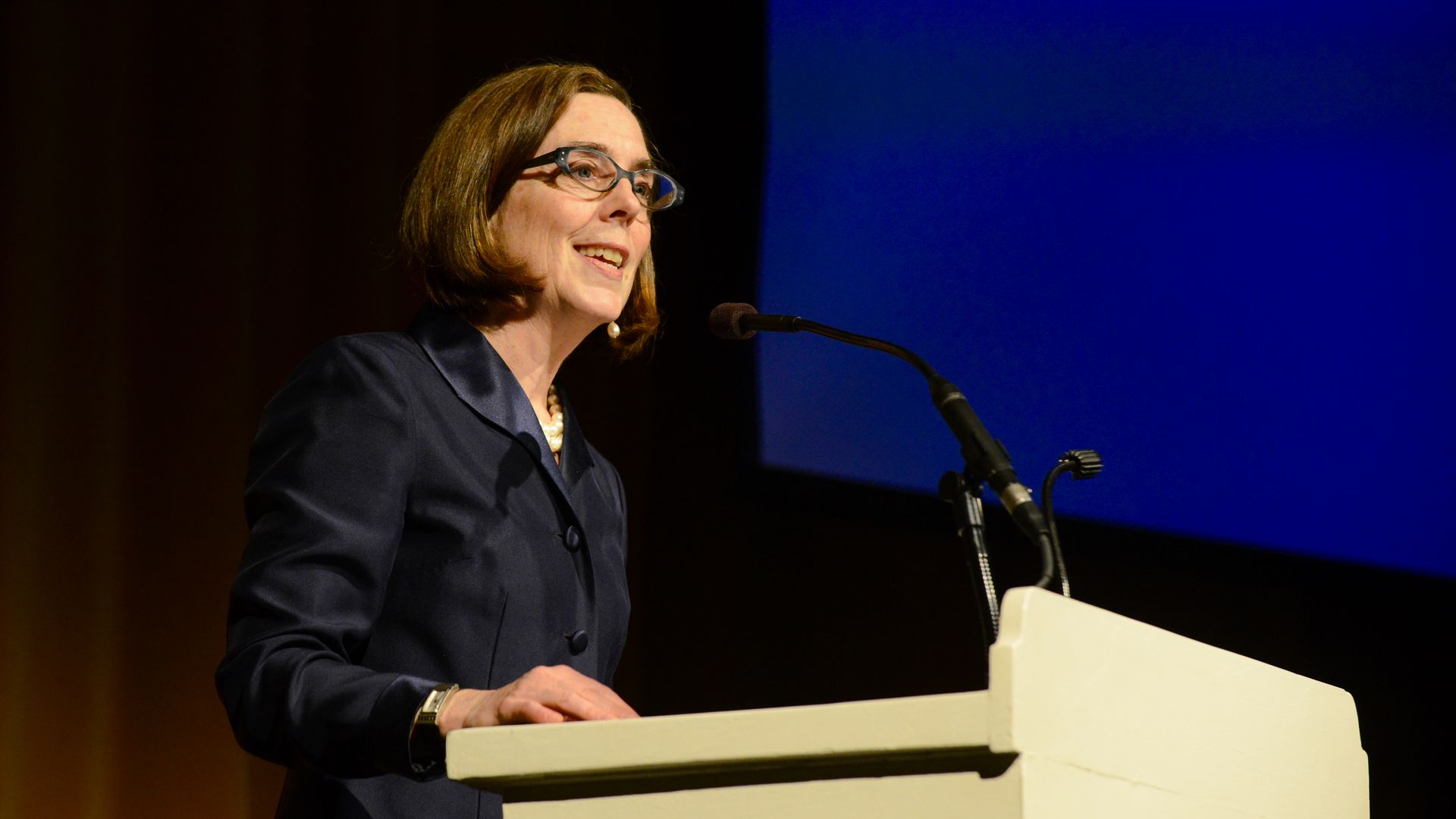Local leaders look to forge ties with China amid trade war
Add Axios as your preferred source to
see more of our stories on Google.

Oregon Governor Kate Brown. Photo: Anthony Pidgeon/Redferns
Feeling the effects of the Trump administration's trade war with China, some states and cities are stepping in to build their own relationships.
Why it matters: Mayors and governors are hearing directly from farmers and business owners concerned that the trade war will permanently cut off access to the Chinese market.
- "People are scared about their livelihoods and job opportunities going somewhere else," said Bob Holden, CEO of the U.S. Heartland China Association and former governor of Missouri. "I see now a paranoia in our culture that we've lost control."
In the midwest, farmers are feeling the squeeze from the tariffs as China looks elsewhere for goods.
- The Trump administration last week announced a $16 billion aid package for soybean, corn, barley, wheat, cotton, dairy and hog farmers hurt by the trade war.
In Oregon, Governor Kate Brown said China is the state's biggest trading partner and both farmers and businesses have been hurt by tariffs. The frozen potato industry lost $20 million last year, for example.
- Brown is encouraging Oregon's universities to continue to open doors to Chinese students, and for programs to let American students travel to China — so each country can have a better understanding of the other. Public schools offer Mandarin immersion programs.
- She acknowledged those efforts won't address tariffs. "But if I can't impact that, I'm going to focus on long-term investments."
Chinese trade accounts for 60% of business at the Port of Los Angeles, and the city is the most visited U.S. destination for Chinese tourists. Both areas have seen declines in the past year, said Amb. Nina Hachigian, L.A.'s Deputy Mayor of International Affairs.
- L.A. is one of the country's most diverse cities and has more resources than most to forge its own global relationships.
"The trade situation is forcing partners to look for someone to talk to the way they used to talk to Washington. If you want to create jobs in your city, you need to be internationally engaged."— Hachigian, speaking at Brookings Institution event this week
